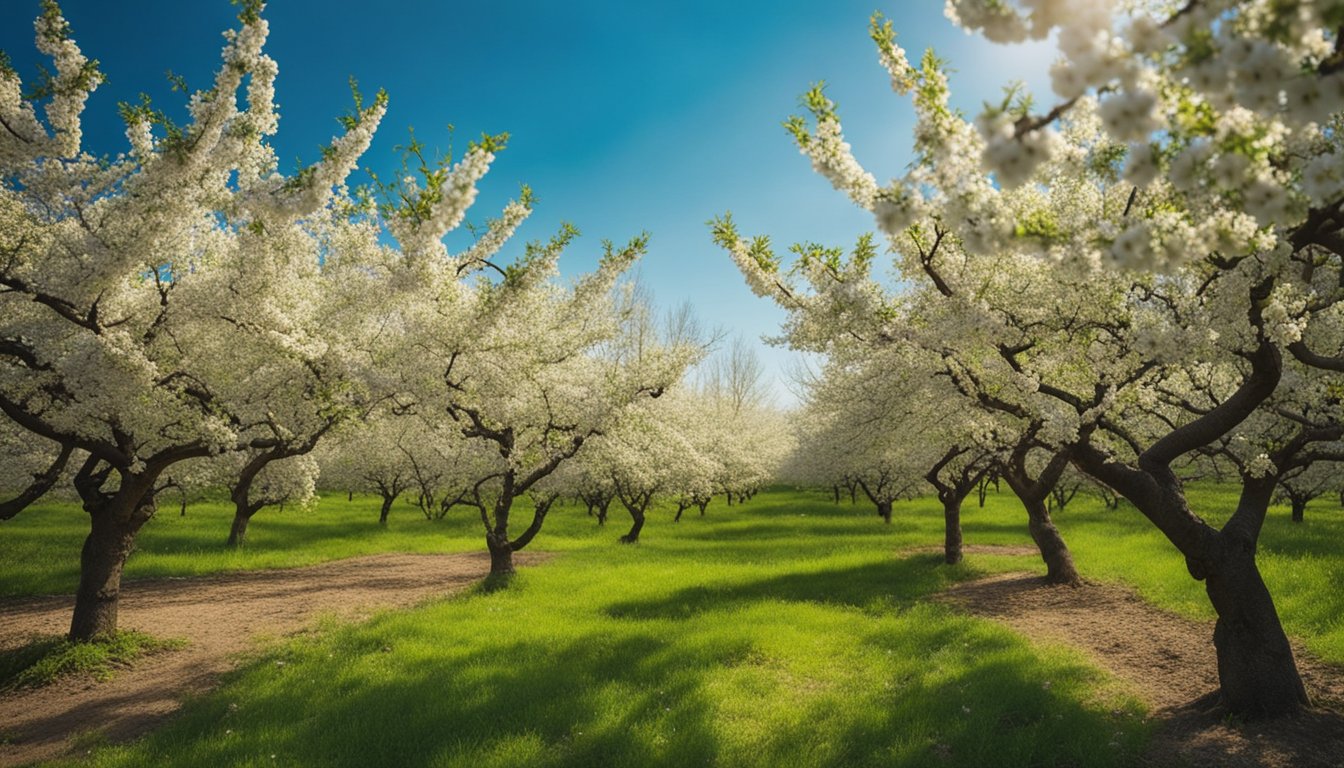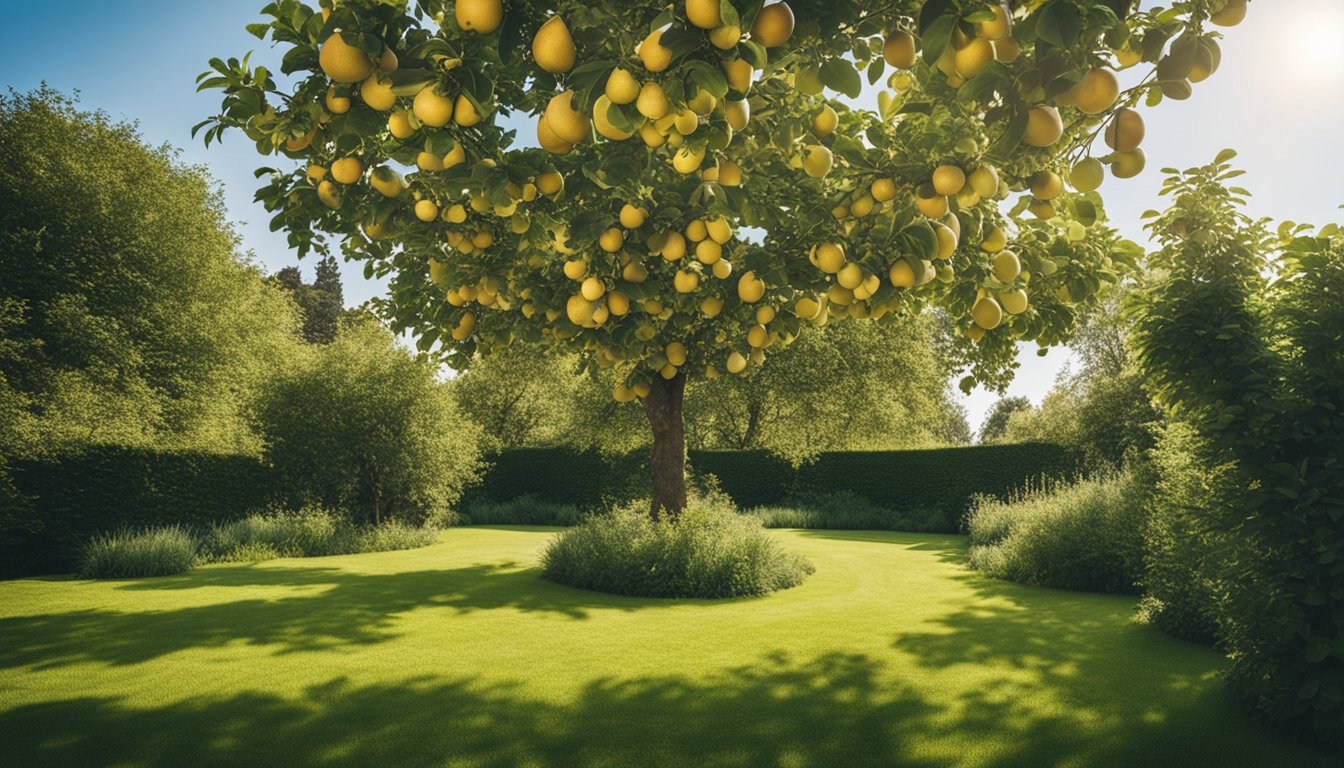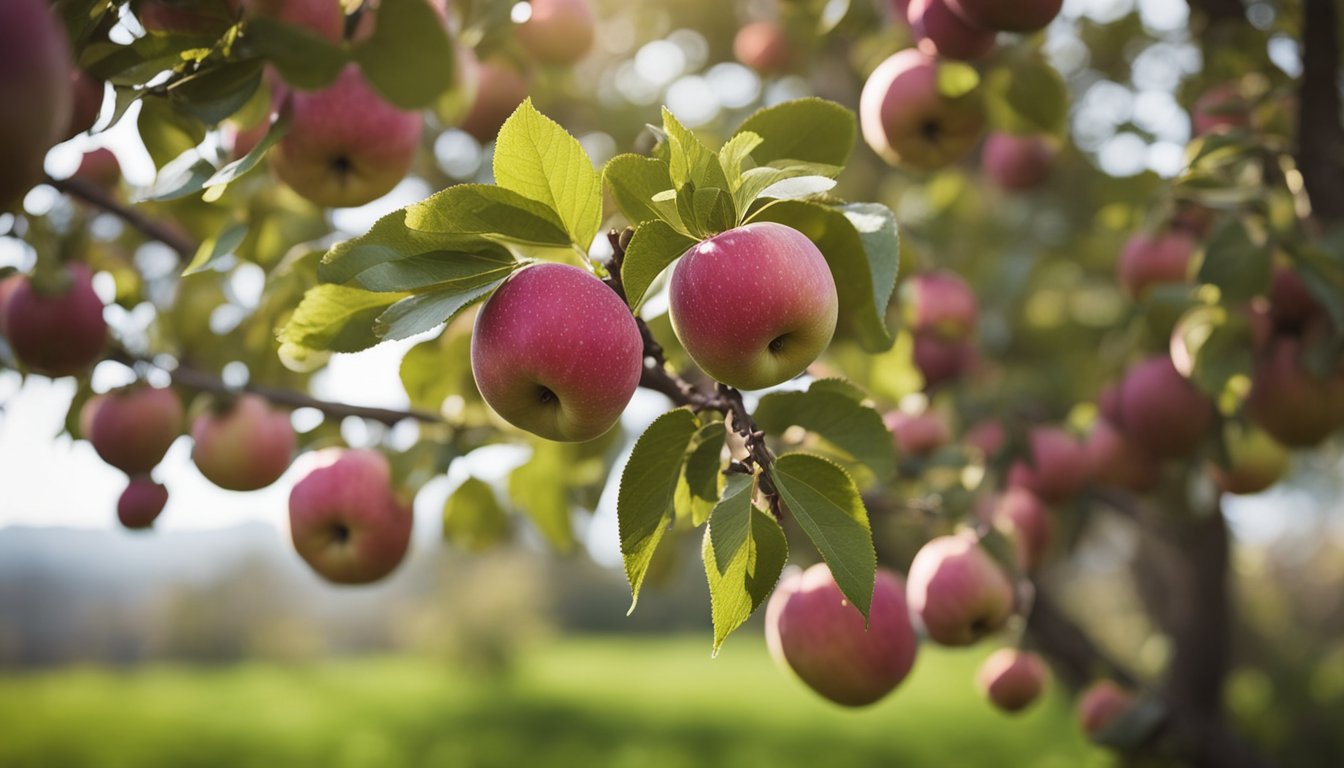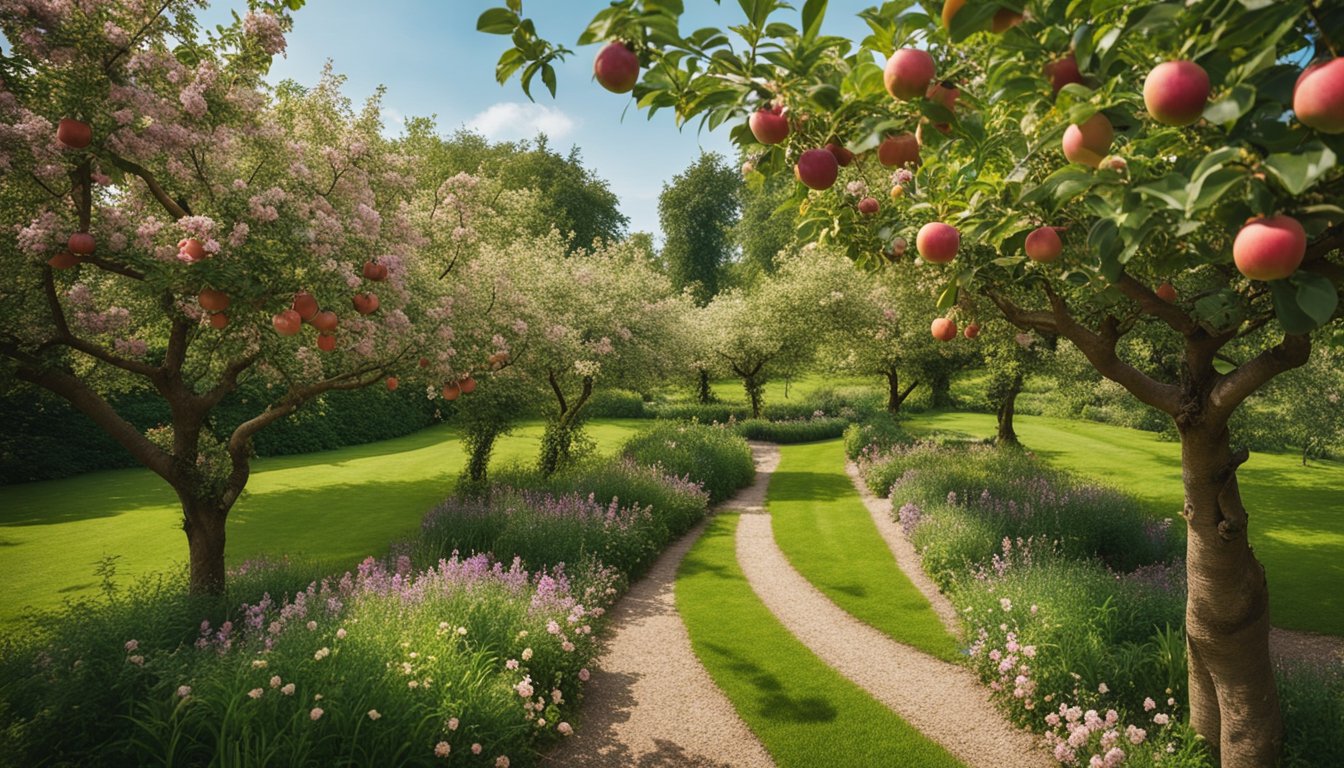Late updated: 13 Aug 2024 16:08
Written by: Emily Thornton
Top Native UK Fruit Trees For Your Garden: Best Choices and Tips
For those of us looking to diversify our gardens with native UK fruit trees, understanding the variety of options available is key. From the tart fruits of the Sloe bush to the sweetly-scented blossoms of the Crab apple tree, native species offer both beauty and utility. These trees not only provide delicious fruit but also support local wildlife, contributing to a more sustainable garden ecosystem.

Among the top native selections, the Crab apple stands out as an exceptional choice. Its pink-white blossoms are a sight to behold in spring, and the fruits can be used to make delightful jellies. Additionally, another must-have is the Sloe bush, known for its small, dark purplish-black fruits that are perfect for making homemade jams and liqueurs.
Planting native UK fruit trees offers numerous benefits for our gardens, from enhancing biodiversity to reducing maintenance needs. Embracing these native species makes for a thriving, self-sustaining environment that rewards us with seasonal delights.
Key Takeaways
- Choose native UK fruit trees for a sustainable garden
- Native options like Crab apple and Sloe bush offer beauty and utility
- These trees support local wildlife and require less maintenance
Selecting the Right Fruit Trees for Your UK Garden

Choosing the perfect fruit trees requires an understanding of soil and sun needs, knowledge of suitable varieties, and familiarity with pollination habits.
Understanding Soil and Sun Requirements
Proper soil and sunlight are crucial for fruit tree health. Most fruit trees prefer well-drained soil that retains some moisture but doesn't become waterlogged. Heavy clay soils may need amendment to improve drainage, while sandy soils may require organic matter to boost fertility.
Sunlight is another key factor. Apple, pear, plum, and cherry trees typically need full sun for at least 6-8 hours daily. This encourages healthy growth and fruit production. Some varieties can tolerate partial shade but may produce fewer fruits. Position your trees where they can enjoy unobstructed sunlight for maximum yield.
Fruit Tree Varieties Suited to the UK Climate
Certain fruit tree varieties thrive in the UK's diverse climate. Apple trees are a popular choice, with varieties like 'Gala' and 'Egremont Russet' being well-suited. Pear trees such as 'Conference' and 'Williams' are also resilient and productive.
Plum and cherry trees add a splash of colour with their blossoms in spring. For plums, 'Victoria' is a favoured variety, while 'Stella' is a dependable cherry tree. These trees withstand the UK's cooler weather and provide delicious fruits from summer to early autumn. It's best to select disease-resistant varieties to minimise the need for chemical treatments.
Pollination and Fruiting Habits
Understanding pollination is vital for a fruitful garden. Some fruit trees are self-fertile, meaning they can set fruit with their own pollen. Examples include 'Stella' cherries and 'Williams' pears. However, many varieties require cross-pollination from a different compatible tree.
In the case of apples, it's essential to plant two different varieties close enough for bees to transfer pollen. For pear and cherry trees, consult a pollination chart or expert to ensure compatibility. By having multiple blooming varieties, we enhance the chances of abundant fruit set.
Proper pollination also supports wildlife, attracting bees and insects with nectar-rich flowers. This not only boosts fruit production but also fosters a healthy garden ecosystem.
Caring for Your Fruit Trees Through the Seasons

Proper care for fruit trees throughout the year ensures healthy growth, abundant yields, and protection against pests and diseases. Below, we explore essential tasks by season to keep your garden flourishing.
Spring and Summer Maintenance
During spring, fruit trees awaken from dormancy. We start by pruning to remove any dead or damaged branches and shape the trees for optimal growth. Apple and pear trees benefit greatly from this activity. It's also crucial to fertilise the soil around the base, ensuring nutrients are available when new growth begins.
As the trees burst into flowers, they attract a variety of wildlife, including birds and insects like bees. Adequate watering is vital, especially during dry spells; a deep soak encourages strong root development. Mulching around the base not only retains moisture but also suppresses weeds, which can otherwise compete for nutrients.
We monitor closely for pests such as caterpillars that can damage new leaves and flowers. Birds like thrushes act as natural pest controllers. Employing organic sprays or barriers can also help protect our trees from these pests during these months.
Autumn Preparation and Winter Protection
As we move into autumn, our focus shifts to harvesting the fruit and preparing the trees for the cold months. We gather ripe apples, pears, and other fruits promptly to prevent wildlife from foraging on them. Post-harvest, it's essential to conduct another round of light pruning to tidy up the trees and remove any remaining unhealthy branches.
Applying a generous layer of mulch around the base helps shelter the roots from frost. This provides insulation and ensures that the trees maintain moisture levels. We also consider wrapping young or vulnerable trees in horticultural fleece to protect them from harsh winter winds, which can strip leaves and cause undue stress.
Dealing with Pests and Diseases
Throughout the year, vigilance against disease and pests is ongoing. Signs of fungal diseases such as blight or powdery mildew need addressing with appropriate fungicides. Pests like caterpillars and aphids can be managed through natural predators or safe insecticides.
Encouraging diverse wildlife in our garden helps maintain a balance. Birds, beneficial insects, and even small mammals play roles in pest control. Regularly inspecting leaves and fruit for any signs of trouble helps us take swift action, ensuring our trees remain healthy and productive.
We stand ready to adapt our care strategies as needed, leveraging our understanding of seasonal changes to safeguard our fruit trees and promote a thriving garden.
Frequently Asked Questions

We often encounter questions about the best native fruit trees for UK gardens, historical fruits, and how climate affects cultivation. Whether you have a sprawling garden or a small yard, you'll find useful information here.
What are the best native fruit trees to plant in a UK garden?
Native fruit trees like the apple (Malus domestica), pear (Pyrus communis), and the sloe bush (Prunus spinosa) are ideal for UK gardens. These species adapt well to local climates and soil conditions, offering a rich harvest.
Which traditional English fruit trees yield historical significance?
Historical English fruit trees include the 'Bramley' apple and the 'Conference' pear. These have been grown for centuries and are cherished for their cultural and culinary importance.
Can tropical fruits be cultivated in the UK's climate?
Tropical fruits generally struggle in the UK's temperate climate. However, certain varieties like the 'Meyer' lemon can be grown indoors or in greenhouses, allowing for some successful cultivation despite the weather.
Which fruit tree species are most suited for small UK gardens?
For small gardens, consider dwarf varieties such as the 'Ballerina' apple or the 'Cherry Baby' cherry. These trees thrive in containers and require less space while still providing a decent yield.
What is the fastest fruit-producing tree suitable for the UK environment?
Plum trees, particularly the 'Victoria' variety, are known for producing fruit relatively quickly. Within a few years of planting, you can expect a significant yield.
Are there fruit trees that also offer privacy in a garden setting?
Fruit trees like the damson (Prunus domestica) and the crab apple (Malus sylvestris) are excellent for privacy. Their dense foliage and medium to tall growth provide a natural screen while yielding an abundance of fruit.
